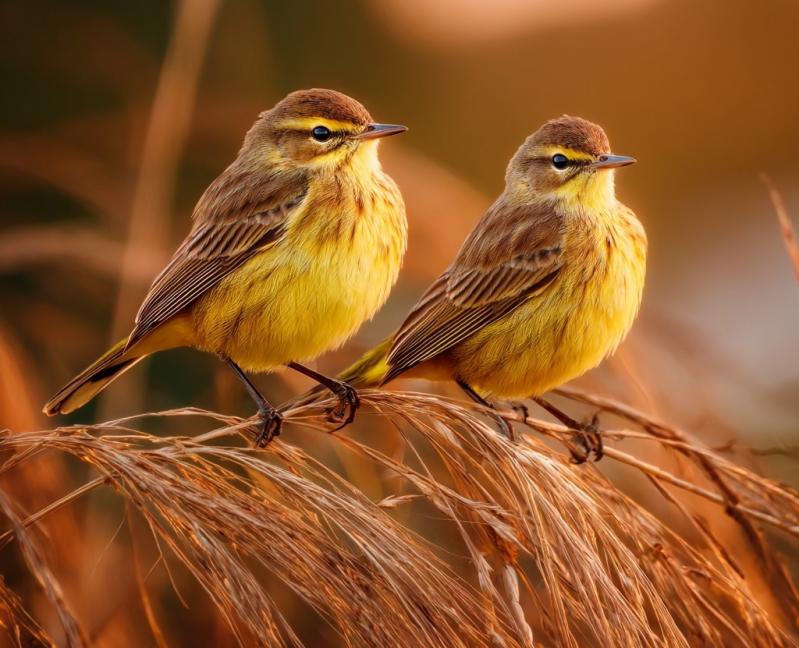When A.I. causes mass unemployment, rest assured, it will also help you identify birds as you sit around doing nothing.
The Merlin bird identification app uses “machine learning” to analyze birdsong and identify the singing species.
Over all, I believe it is a force for good. Still, I have this nagging idea that it’s bringing me down, making me lazy, and triggering an existential crisis.
Even without A.I., there were signs that I was in a bird rut.
I walk outside with my morning cup of coffee while bluejay screams pong off me like a ball against a wall. I’m unmoved.
A friend tells me they’ve seen an eagle. I don’t care.
A permit expediter sells the zoning board on a 6,000-square-foot glass cube of a house in pristine bird habitat, a sure slaughterhouse for birds. Okay.
And just a week ago, a common cuckoo landed in Riverhead. Droves of birders dropped everything and rushed to see it. I waited to make a trip to Costco and missed it. Shrug.
This has happened before. If I’m not careful, I’ll rip out all my native plants, throw in a green giant hedge, and let our cats live outside.
It will pass.
In many ways, it seems that birding has never been more popular. Maybe that’s the problem. I’m contrarian by nature.
There’s the hit “extreme birding” movie “Listers,” a combination of Jack Kerouac’s “On the Road,” Cheech and Chong’s “Up in Smoke,” and the Kenn Kaufman book “Kingbird Highway.” It’s streaming for free on YouTube and since August has amassed nearly two million views.
Then there’s the slew of bird books targeting the “Beavis and Butt-Head” set. They profile birds with fake names like “Blow Jay” and “Cruddy Turdstone.” I’ve been gifted more than one.
But back to A.I. and birding. See, once I had this special thing. I could identify bird calls by ear. Never was an average-looking middle-aged bald man so appealing to septuagenarian and octogenarian females.
I memorized CDs of birdsong. I bloodied myself in the field, batting back brambles while becoming an important food source for starving ticks as I tracked down the source of some unknown jumble of notes.
I did this all just to learn, because, turns out, I liked learning.
Once, there were mysterious snippets of song. I accepted my inability to identify them. I’d puzzle over the sound. If anything, they pointed to areas I could improve.
Now, anyone can stand in the woods, hold out their damned phone, and say, “Uh, yeah, that’s a black-throated blue warbler,” or whatever, stealing my single parlor trick.
Worse, every time that happens, a tech bro somewhere gets a new Tesla.
First, I was simply annoyed by Merlin. I’d be walking with a group of birders when one might say, “Merlin thinks that’s a BLANK.” We’d all have to rethink what we thought we’d heard.
Or, we’d be hearing nothing at all and that friend might say, “Wait! Stop! Merlin just heard a BLANK.” And we’d all have to stop and strain to hear what Merlin heard.
It was as if one of your friends, without asking, brought along this new, super opinionated, sometimes right, sometimes wrong, friend who you were, out of politeness, reluctant to debate.
Merlin just got away with saying shit. Nonetheless, it is now an inescapable presence in birding circles.
Sure, I have Merlin installed. We’ve been told to use A.I. as a tool. “Don’t let A.I. replace your brain,” say the experts. “Remember to do things like eat, and love,” they say. But look around. We’ve long been told to put our phones down. How’s that going for everybody?
We’re on a waterslide into a pool of oblivion.
Once upon a time, birders might arm themselves with a simple pad and pencil before they tromped off into the woods. Some brave birders even went in “naked” and REMEMBERED the birds they saw.
Sounds quaint and old-timey, but I’m talking a decade ago. Now, phones are attached to our bodies like colostomy bags. We’ve allowed work texts and grocery lists to penetrate the green calm that was once a walk in the woods.
When birding, you could touch the sacred. If you were lucky you experienced wonder. I could get lost on a loop trail. Not knowing was okay. Not knowing was stimulating.
With Merlin, I’ve lost that stimulus.
Like I said, it’ll pass. It’s something I’m working through. Luckily, Chat GPT had some advice.
A.I. short-circuits the reward loop “that comes from curiosity, effort, and discovery,” said Chat. “It’s like getting to the top of a mountain by helicopter: You see the view, but you miss the climb that gives the view meaning.” Right.
It told me to shift from answers to understanding, to work on things that matter personally, and to embrace “productive struggle.” Learn to create, not just consume. It even offered to give me a personal framework to rekindle my motivation to learn, to work with A.I. instead of being numbed by it.
Which was nice.
I still love birds. Last week, I was with a friend in her farm field trying to identify sparrows in rows of spent millet.
“There’s lots of worms around here,” she said.
Sure enough, in the next moment, we spotted two, late in the season, silent palm warblers. Merlin had no idea.
For a second I felt that old spark.




